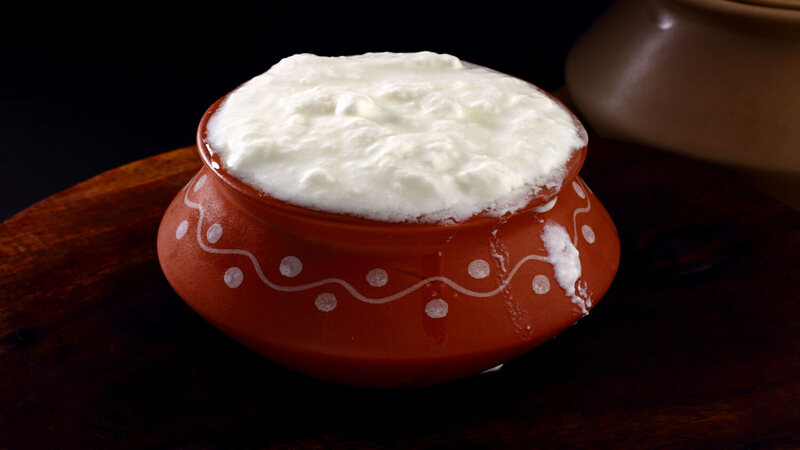
There is great excitement and expectation during pregnancy, and there is also a tremendous duty to protect the health of the mother and the developing fetus. Diet is one of the several factors during this transitional time that is crucial to ensuring healthy development and growth. One common dietary question is, is it safe to eat curd during pregnancy? Curd or yogurt, has been heralded for its health benefits and nutritional worth for quite some time. Curd is a healthy addition to any diet, but pregnant women have a right to know more about their benefits and side effects.
In this article, we delve into the topic of eating curd during pregnancy and determine if it’s safe. Furthermore, we will consider its nutritional benefits for the expecting mother and her fetus. Let’s find out the real deal about curd so that pregnant women can make smarter nutritional decisions for themselves and their fetuses.
Is it Safe to Have Curd During Pregnancy?
Curd is generally safe to eat when pregnant. Curd is a healthy dairy food with several benefits for expecting mothers. It provides critical elements like- calcium, protein, probiotics, vitamin B12, and folic acid, helping the pregnant woman and her fetus grow and thrive. The probiotic content in curd improves digestion, intestinal health, and immunological function.
However, women who are lactose intolerant or have a dairy allergy should exercise caution if they are pregnant. Curd can have unintended consequences, therefore, consuming it in moderation is best. Speaking with a healthcare professional for specific dietary advice during pregnancy is best.
Nutritional Benefits of Curd
Curd benefits the expecting mother’s health and the fetus’s development thanks to its high vitamin content. Curd provides many health benefits, like-
1. Rich in Protein
Curd is a great supplement to a healthy diet because it includes a lot of protein. During pregnancy and childhood, protein is especially vital since it aids in cell repair, muscle development, and general growth of the body.
2. Bone-Building Calcium
Curd contains a good amount of calcium, a mineral essential for healthy bones and teeth. Bone density can be maximized, and the risk of osteoporosis is minimized by consuming enough calcium. During pregnancy, a woman’s body needs more calcium for the development of the fetus as well. Hence, curd can be a good option.
3. Gut-Healthy Probiotics
Curd contains beneficial probiotics, including Lactobacillus and Bifidobacterium in its live culture. These good bacteria support the immune system, help digestion, and increase nutritional absorption.
4. Vitamin B12
Vitamin B12, a water-soluble vitamin essential for healthy red blood cell production and neurological function, is abundant in curd. Vegetarians and vegans must take special care to ensure they get enough vitamin B12 because it is almost exclusively present in animal products.
5. Folic Acid
Curd’s high folic acid content benefits pregnant women since it aids in fetal growth. Neural tube abnormalities, which can affect a baby’s brain and spine, can be avoided with folic acid.
6. Potassium
Potassium is a vital mineral the body uses to maintain healthy blood pressure and fluid balance. It is present in ample amounts in curd. So, one more reason to eat it.
Amazing Top 8 Benefits of Curds During Pregnancy

Curd provides numerous advantages for the mother and the developing fetus due to its high nutritional content. Some of the many advantages of including curd in a pregnant woman’s diet are-
1. Excellent Calcium Content
Calcium, a mineral essential for the growth of the baby’s bones and teeth, is abundant in curd. Pregnant women require more calcium for bone health and their fetus’’s skeleton development.
[Read : Calcium During Pregnancy]
2. High-Quality Protein
The developing fetus and the evolving mother’s body require enough protein. Curd is a great way to get a lot of protein that helps cells and tissues heal.
3. Support Digestion With Probiotics
Curd is rich in probiotics. Constipation and bloating are frequent complaints during pregnancy, but these probiotics help maintain a healthy digestive system and reduce these symptoms.
4. Contains Folic Acid
The folic acid found in curd is essential for developing the fetus’s brain and spine in the first few months of pregnancy.
5. Improves Immunity
Curd’s live cultures enhance the immune system, protecting pregnant women from getting sick from the increased susceptibility they experience to infection.
6. Managing the Weight
Thanks to the protein and probiotics curd contains, it can help pregnant women keep their weight in check by making them feel full for longer.
7. Blood Pressure Control
Potassium, abundant in curd, benefits cardiovascular health by controlling blood pressure and fluid balance.
8. Managing Food Cravings
Curd is a healthful and delicious alternative to sugary and unhealthy treats. It can help deal with cravings during pregnancy.
[Read : Food Cravings During Pregnancy]
Are There Any Risks of Having Curd During Pregnancy?

While most experts agree that curd is perfectly fine to eat while pregnant, expectant moms must know about the small but real risks involved. Some potential risks of having curd during pregnancy are –
1. Inability to Digest Lactose
The inability to digest lactose (milk sugar) is known as lactose intolerance, a disorder that can affect certain pregnant women. Consuming curd may cause gastrointestinal distress, such as flatulence, gas, and diarrhea.
2. Allergies
Some people, exceptionally rarely, may be allergic to protein found in curd. Pregnant women diagnosed with a dairy allergy should avoid curd, along with the rest of the dairy products.
3. Chances of Contamination
Pregnant women should only eat pasteurized curd that receive proper refrigeration to avoid food poisoning.
Side Effects of Having Curd During Pregnancy

Curd’s high nutrient and probiotic content are beneficial during pregnancy. However, as with any food, some people may experience negative consequences from overeating or being allergic to it. For expecting mothers, knowing the possible adverse consequences of curd is crucial for making educated dietary selections. Some potential risks associated with eating curd while pregnant include-
- Some pregnant women may experience gastrointestinal distress from overeating curd
- Curd can cause diarrhea or loose stools in people who are lactose intolerant if it is consumed in large quantities
- Curd’s acidity could aggravate heartburn in pregnant women who already suffer from acid reflux
- Curd can cause allergic responses in people susceptible to dairy allergies
- Curd is nutritious, but overeating without watching the portion size can cause weight gain while pregnant
The answer to the question – can i eat curd during pregnancy? is yes, but in moderation. Curd is a healthy dairy food that can be eaten normally when pregnant. It benefits the mother and fetus because of the probiotics and nutrients it contains. Curd is safe for most people, but pregnant women who are lactose intolerant or have dairy allergies, should consume it cautiously. Before making any significant nutritional changes during pregnancy, it is recommended that you speak with a healthcare provider.
FAQ’s
1. Can You Have Curd Daily?
You can safely include curd in your everyday diet at any point in your pregnancy. However, moderation is essential, and if you have any questions or are experiencing any discomfort, you should talk to your doctor.
2. Is it Safe to Eat Sour Curd During Pregnancy?
Some pregnant women may find the increased acidity of sour curd challenging to tolerate, although it is safe to eat. Stick with conventional curd if acid reflux or heartburn is a problem. Listen to your body and make dietary changes as needed.

